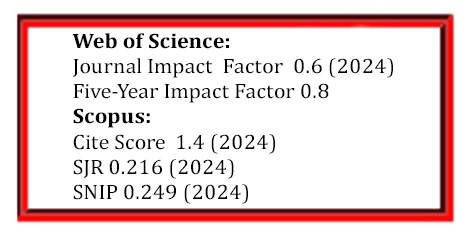Magnesium Salt Influenced Strength Behavior of Lime-Fly Ash Stabilized Fine Grained Soil
DOI:
https://doi.org/10.5755/j01.ms.26.3.21825Keywords:
pavement structure, lime-fly stabilized ash soil, stability, MgCl2, compressive strengthAbstract
The fine grained soil subgrade in coastal areas has the characteristics of high underground water level and serious salinization, and the lime-fly ash stabilized soil (LFSS) often used as the road base material. In order to study the effect of magnesium salt on the material strength, 5 % MgCl2 solution was used to simulate the groundwater magnesium salt environment, and specimens with 7 d, 14 d, 28 d, 60 d and 90 d curing ages were tested in MgCl2 solution for 1 d, 5 d, 10 d, 15 d or 30 d. A controlled test was also conducted in purified water. Strength mechanism of LFSS was analyzed; SEM test was taken; and the influence mechanism of MgCl2 medium was analyzed. The results showed that MgCl2 medium, immersing time, and curing age have effects on compressive strength of LFSS. More specifically, although the early strength is low, the strength of LFSS maintains slow and steady growth from 7 d to 90 d. Long-term immersing in both MgCl2 solution and purified water will reduce the strength of LFSS, while the strength of specimen immersed in MgCl2 solution will decrease faster. Reactions between MgCl2 and LFSS destroyed the original gels and crystals, causing a negative impact on the strength of LFSS. However, with the test dose of MgCl2, the reduced strength of LFSS can still satisfy the sub-base requirement of second-class highway in China.Downloads
Published
2020-03-17
Issue
Section
CONSTRUCTION MATERIALS
License
The copyrights for articles in this journal are retained by the author(s), with first publication rights granted to the journal. By virtue of their appearance in this open-access journal, articles are free to use with proper attribution in educational and other non-commercial settings.



